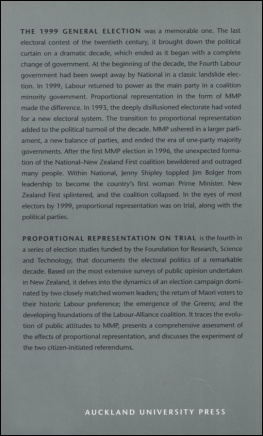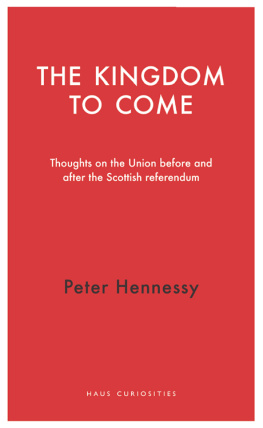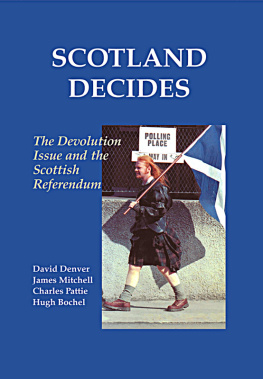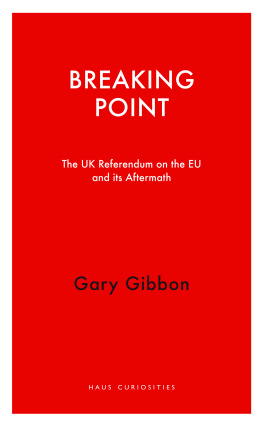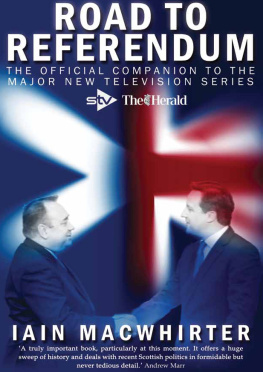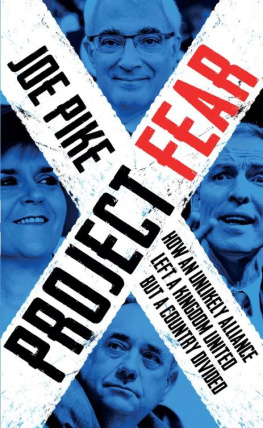The 1993 General Election in New Zealand and the Transition to Proportional Representation
This book is copyright. Apart from fair dealing for the purpose of private study, research, criticism, or review, as permitted under the Copyright Act, no part may be reproduced by any process without prior permission of Auckland University Press.
Note: All tables in this book are sourced in the 1993, 1990 and 1987: NZES data unless otherwise indicated.
: | The Main Variables Influencing Voting Choice in 1993 |
: | Regional Differences in Party Support, 1993 Election |
: | Party Votes and Swing to Labour By Electorate, 1993 Election, by Employment and Class Variables |
: | Political Parties and Social Structure, 1993 Election: Voters and Party Elites |
: | Percentage of Different Categories of Identifiers Who Voted in Accordance with their Party Identification |
: | Structure of Identifications Among Party Voters |
: | Party Identification within Voting Groups (%) |
: | How Unified and Divided Partisans in 1990 Voted in 1993 |
: | Election Results 1990 and 1993 |
: | Change and Stability: The Overall Pattern 199093 (Panel data) (%) |
: | Where the 1990 Voters Went to in 1993 (Panel data) (%) |
: | Where the 1993 Vote Came From (Panel data) (%) |
: | Per Cent Making Campaign Voting Decision by Voter Categories |
: | Interest in Politics by Voter Categories |
: | Election Issues: Importance in Voting Choice and Party Closest to Own Views |
: | The Inflation/Unemployment Trade Off |
: | The Inflation/Unemployment Trade Off by Party Support Groups |
: | Dimensions of Economic Voting |
: | Materialism/Postmaterialism in 1990 and 1933 Voters |
: | Postmaterialism by Age Groups 1990 and 1993 |
: | Decomposing the Inglehart Battery, 1990 and 1993 voters |
: | Libertarianism, Materialism and Postmaterialism Among Voters and Party Elites in 1993 |
: | Attitudes to Government Welfare Expenditure Among Voters, Candidates and Party Delegates |
: | Attitudes to Government Welfare Spending by Voting Choice |
: | Attitudes on Government Welfare Spending of Candidates and Delegates by Party |
: | The Principles Behind Social Policy Opinion of Voters |
: | Attitudes to Free Education and Health Care |
: | Support for Free Health Care by Age |
: | Government Responsibility to Find a Job for Everyone by Income |
: | Policies Which Might Help Solve New Zealands Economic Problems by Voting Groups |
: | Views on Levels of Taxation for Health and Education and Social Expenditure by Voting Choice |
: | Redistribution Opinions of Party Voters and Elites and Perceptions of the Party They Supported or Belonged to |
: | Attitudes to Levels of Taxation by Voting Choice |
: | The Structure of Political Attitudes, Party Elites and Voters (Factor Loadings) |
: | Opinion on Unions,Women, Race Relations and Environment 19901993 |
: | Political Attitudes on Defence and Nuclear Weapons, 19871993 |
: | Support for Policies Which Might Help Solve New Zealands Economic Problems |
: | Opinion on Privatisation of State-Owned Enterprises |
: | Political Attitudes Among Party Elites and Voters |
: | Important Voices in Law Making, Voters and Elite |
: | What Should be the Most Important Representational Role, Voters and Elite |
: | Voices MPs Actually Do Heed, Voters and Elite |
: | What Actually Is the Most Important Representational Role, Voters and Elite |
: | Discrepancy Between Role Expectation and Role Reality |
: | Voter Perceptions of Trustworthiness of Parties (%) |
: | Political Trust, Voters and Elite |
: | Correlates of Political Distrust |
: | Voting and Political Distrust |
: | Electoral Participation |
: | Mean Score of Psychological Variables |
: | Correlates of Electoral Participation, 1993 |
: | Pathways to Four Modes of Electoral Participation |
: | Pathways to Electoral Participation, A Summary |
: | Party and Referendum Votes by Participation Modes |
: | Perceptions of Party Unity by Party Support Groups |
: | Attitudes Towards the Party Leaders by Party Vote |
: | Attitudes to Clark and Richardson by Gender |
: | Flow of the Referendum Vote 1992-93 Change 1992 and MMP 1993 |
: | Voters Flow of the Referendum Vote 1992-93 Options 1992 and MMP 1993 |
: | Voters Flow of the Referendum Vote: MMP 1993 and Options 1992 |
: | Support for MMP and FPP by Party Vote |
: | How Social Groups Voted in the Referendum (%) |
: | Electors Views on the Role of an Election (% agree) |
: | Views on Coalition Government (% agree) |
: | Support for Other Types of Change (% support) |
: | Views on Wider Representation (% agree) |
: | Views on Party Organisation (% agree) |
: | Views on the Act of Voting (% agree) |
: | Actual and Simulated MMP Results, 1993 Election |


